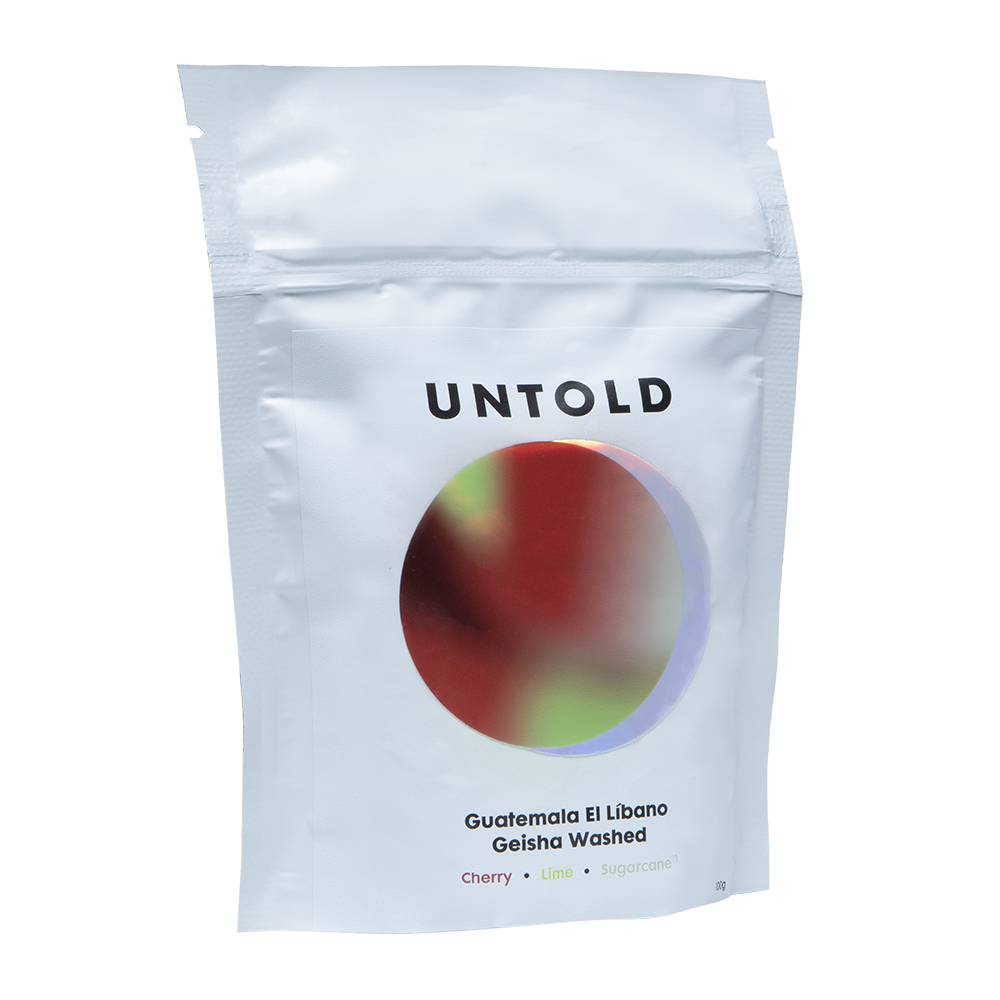Guatemala El Líbano Geisha Washed 11/43367345
Guatemala El Líbano Geisha Washed 11/43367345
- Lime
- Sugarcane
- Cherry
The best way to describe this coffee is drinkability: delicious flavors of cherry with a lime like acidity and sugarcane sweetness, this coffee brings a creamy body and has a subtle aftertaste of chocolate. Your best choice for a versatile coffee, to drink as filter, espresso and even pairing perfectly with milk, this gem was found by Raul Rodas (2012 WBC Champion) in the Acatenango Valley in Guatemala and it is produced by Herbert Perez from Finca El Libano.

Profile
Taste Experience
(on a scale of 1 to 5)
Flavor Experience
Acidity: Citric & Malic
Lime
Sweetness: Sugarcane
Sugarcane
Body: Creamy
Cherry
Details

Untold Story
About The Farmer & Farm
Herbert Pérez has run the farm since 1992. Originally, El Libano was part of a larger farm called Finca La Pampa and was purchased by Herbert’s grandfather in 1915. El Libano didn’t start as a coffee farm. In fact, it first cultivated corn, beans and sugarcane. It was in 1940 that coffee was first harvested and twenty years later, the farm purchased a wet mill, built roads and purchased trucks for the farm.
Herbert was able to dedicate himself full time to the farm until the recent leaf rust crisis. This forced him to find a full time job in the local department of agriculture, and rely on his farm manager to maintain the ongoing work. Being a part of the agronomy department however, has enabled Herbert to learn more, which has helped out with improving the farm.
-

About The Farmer & Farm
Herbert Pérez has run the farm since 1992. Originally, El Libano was part of a larger farm called Finca La Pampa and was purchased by Herbert’s grandfather in 1915. El Libano didn’t start as a coffee farm. In fact, it first cultivated corn, beans and sugarcane. It was in 1940 that coffee was first harvested and twenty years later, the farm purchased a wet mill, built roads and purchased trucks for the farm.
-

Herbert was able to dedicate himself full time to the farm until the recent leaf rust crisis. This forced him to find a full time job in the local department of agriculture, and rely on his farm manager to maintain the ongoing work. Being a part of the agronomy department however, has enabled Herbert to learn more, which has helped out with improving the farm.

Herbert always delivers quality, for me is one of the hidden gems that I have found in coffee career, being a geisha herloom, it showcase a very nice floral and jasmine quality on filter, a very clean sweetness and also great body that the terroir give it away, the best way to showcase this coffee as an untold story to the world, great o have an amazing team to deliver this coffee to the world.
Featured collection
-
Panama Altieri Geisha Washed 130124
Shop NowRegular price From $34.00Regular priceUnit price / per -
Panama Janson Geisha Natural Los Alpes 552
Shop NowRegular price From $40.00Regular priceUnit price / per -
Panama Janson Geisha Washed Los Alpes 507
Shop NowRegular price From $40.00Regular priceUnit price / per








